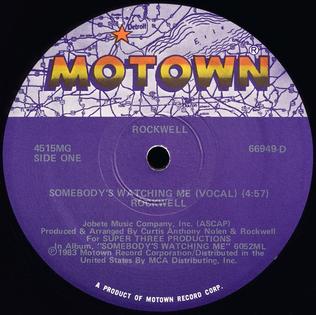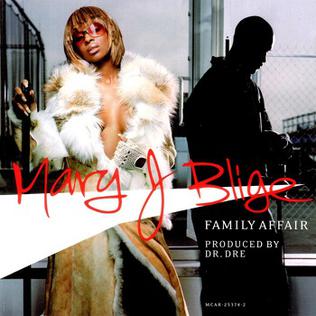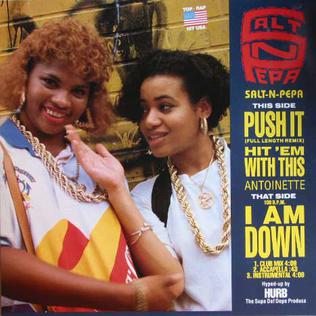
"Knockin' on Heaven's Door" is a song by American singer-songwriter Bob Dylan, written for the soundtrack of the 1973 film Pat Garrett and Billy the Kid. Released as a single two months after the film's premiere, it became a worldwide hit, reaching the Top 10 in several countries. The song became one of Dylan's most popular and most covered post-1960s compositions, spawning covers from Eric Clapton, Guns N' Roses, Randy Crawford and more.
Craig Dougall McLachlan is an Australian actor, musician, singer and composer. He has been involved in film, television, the music industry and music theatre for over 30 years. He is best known for appearing in the soap operas Neighbours and Home and Away and the BBC One spy drama Bugs. He has portrayed the title character in The Doctor Blake Mysteries, for which he was nominated for the Logie Award for Most Popular Actor; he has previously won the award in this category three times.

"Somebody's Watching Me" is a song recorded and written by American singer Rockwell, released by the Motown label in 1984, as the lead single from his debut studio album of the same name. It features guest vocals by brothers Michael Jackson and Jermaine Jackson. The song became a major commercial success internationally, topping the charts in Belgium, France, and Spain, and reaching the top 5 in Canada, West Germany, the Netherlands, New Zealand, South Africa, Sweden, Switzerland, and the United States. In the UK, it reached No. 6 and is Rockwell's only top 40 hit on the UK Singles Chart.

"Cat's in the Cradle" is a 1974 folk rock song by Harry Chapin from the album Verities & Balderdash. The single topped the US Billboard Hot 100 in December 1974. As Chapin's only number-one song, it became the best known of his work and a staple for folk rock music. Chapin's recording of the song was nominated for the 1975 Grammy Award for Best Male Pop Vocal Performance and was inducted into the Grammy Hall of Fame in 2011.

"Achy Breaky Heart" is a song written in 1990 by Don Von Tress. First released in 1991 by the Marcy Brothers with the title "Don't Tell My Heart", it was later recorded by American singer and actor Billy Ray Cyrus and released on his debut album, Some Gave All (1992). The song is Cyrus' debut single and signature song. It became the first single ever to achieve triple platinum status in Australia and also 1992's best-selling single in the same country. In the United States, it became a crossover hit on pop and country radio, peaking at No. 4 on the Billboard Hot 100 and topping the Hot Country Songs chart, becoming the first country single to be certified platinum since "Islands in the Stream" by Kenny Rogers and Dolly Parton in 1983. The single topped in several countries, and after being featured on Top of the Pops in the United Kingdom, peaked at No. 3 on the UK Singles Chart. It was Cyrus' biggest hit single in the U.S. until he was featured on "Old Town Road" by rapper Lil Nas X, which peaked at No. 1 on the Billboard Hot 100 27 years later.

"Family Affair" is a song by American singer Mary J. Blige. It was written by Blige, her brother Bruce Miller, Camara Kambon, Michael Elizondo, and producer Dr. Dre for her fifth studio album, No More Drama (2001).

"Suicide Blonde" is the lead single from Australian rock band INXS's seventh studio album, X (1990). It was released on 22 August 1990 in the United States and on 3 September 1990 in the United Kingdom. The song reached number two in Australia, number nine in the United States, and number 11 in the United Kingdom. In Canada and New Zealand, the single peaked at number one for two and three weeks, respectively. At the APRA Music Awards of 1991, "Suicide Blonde" won the award Most Performed Australian Work Overseas.

"Push It" is a song by American hip hop group Salt-N-Pepa, who originated in Queens. It was released as the B-side of the "Tramp" single in 1987. It peaked at number 19 on the US Billboard Hot 100 in early 1988 and, after initially peaking at number 41 in the UK, it re-entered the charts after the group performed the track at Nelson Mandela's 70th birthday concert, eventually peaking at number two in the UK in July 1988. The song has also been certified platinum by the Recording Industry Association of America (RIAA). The song is ranked number 446 on Rolling Stone's list of the 500 Greatest Songs of All Time and was ranked number nine on VH1's 100 Greatest Songs of Hip Hop.

"Praying for Time" is a song written and performed by British singer and songwriter George Michael, released on Epic Records in the United Kingdom and Columbia Records in the United States in 1990. It was the first single from his second studio album, Listen Without Prejudice Vol. 1 (1990), spending one week at number one on the US Billboard Hot 100, making it Michael's seventh number one in the US and his last solo single to reach the top of the Hot 100. "Praying for Time" also reached number one in Canada for two weeks, becoming Michael's penultimate number-one solo hit there.

"Faith" is a song by English singer-songwriter George Michael. Written and produced by Michael, it was released via Columbia Records as the second single from from his 1987 debut solo album of the same name. It held the number-one position on the Billboard Hot 100 chart for four weeks and, according to Billboard magazine, was the number-one single of the year in the United States in 1988. The song also reached number one in Australia and Canada and number two on the UK Singles Chart. In 2001, it placed at number 322 on the Songs of the Century list.

"Desire" is a song by Irish rock band U2 and the third track on their 1988 album, Rattle and Hum. It was released as the album's lead single on 19 September 1988, and became the band's first number-one single in the United Kingdom and Australia. It reached number three on the Billboard Hot 100 in the United States, and topped both the Modern Rock Tracks and Mainstream Rock Tracks charts, making it the first song to reach number one on both charts simultaneously. It reached number two on the Dutch Top 40. At the 31st Annual Grammy Awards, "Desire" won the 1988 Grammy Award for Best Rock Performance by a Duo or Group with Vocal.

"Silence" is a song by Canadian electronic music group Delerium featuring Canadian singer and co-writer Sarah McLachlan, first released in May 1999. Over the years, its remixes have been hailed as one of the greatest trance songs of all time, over a decade after its initial release. The Tiësto remix of the song was voted by Mixmag readers as the 12th greatest dance record of all time.
"Don't Know Much" is a song written by Barry Mann, Cynthia Weil and Tom Snow. Mann was the first to record the song in 1980, gaining a minor chart hit in the US. The song was made famous when it was covered as a duet by Linda Ronstadt and Aaron Neville in 1989. Their version was a worldwide success, topping the Irish Singles Chart and reaching the top 10 in several territories.

"Who You Are" is a song by American rock band Pearl Jam. Featuring lyrics written by vocalist Eddie Vedder and music co-written by drummer Jack Irons and guitarist Stone Gossard, "Who You Are" was released on July 30, 1996, as the first single from the band's fourth studio album, No Code (1996). The song topped the US Billboard Modern Rock Tracks chart and the Canadian Alternative 30 chart. It also peaked at number 31 on the Billboard Hot 100, number two on the UK Rock Chart, and reached the top 10 in Australia, Canada, Norway, and Finland—where the song reached number two and became the band's highest-charting single.

"19th Nervous Breakdown" is a song recorded by the English rock band the Rolling Stones. Written by Mick Jagger and Keith Richards, it was recorded in late 1965 and released as a single in February 1966. It reached number 2 on both the US Billboard Hot 100 and Britain's Record Retailer chart, while topping the charts compiled by Cash Box and NME. In the UK, it broke the band's streak of consecutive number-one singles that had started with "It's All Over Now" (1964).

"Bo Diddley" is a song by American rock and roll pioneer Bo Diddley. It introduced the rhythm that became known as the Bo Diddley beat and topped the Billboard R&B chart for two weeks in 1955. The song is included on many of Diddley's compilation albums including Bo Diddley (1958) and His Best (1997). Buddy Holly recorded a version that became his highest charting single in the UK.

"Club at the End of the Street" is an upbeat pop rock song composed by English musician Elton John with lyrics by Bernie Taupin. It was included on John's album Sleeping with the Past in 1989 and released as its third single in 1990. The song describes a night on the town between two lovers at a disclosed nightclub. John stated in 2013 on Rolling Stone that this song was one of his favourites. He performed this song 3 times live during the One Night Only concerts in 2000.

"Don't Worry" is the debut solo single of English musician Kim Appleby from her self-titled debut solo album (1990). This was Appleby's first solo-single after the death of her sister Mel. The song addresses the process of getting over being heartbroken. With the aid of her then boyfriend, ex-Bros bassist Craig Logan, Kim launched a solo career with much of her debut solo album composed of songs co-written with Mel, for what was intended to be the next Mel and Kim album. The new album showed Appleby in a more prominent, soulful role, although the tongue-in-cheek humour of Mel & Kim still remained.

"Pray" is the third single released from MC Hammer's third album, Please Hammer Don't Hurt 'Em, in August 1990. Produced by MC Hammer, the song heavily samples Prince's 1984 song "When Doves Cry", the first of just a few times that Prince allowed samples of his compositions. The track also interpolates Faith No More's "We Care a Lot". The word "pray" is mentioned 147 times during the song, setting the record for the number of times a song title is repeated in an American Top 40 hit.

"Mama Do the Hump" is the third official single taken from British hip hop duo Rizzle Kicks' debut studio album, Stereo Typical (2011). The single was released in the United Kingdom on 16 December 2011. The track was produced by Fatboy Slim. The song incorporates a sample of Craig McLachlan's 1990 cover of "Mona ", originally recorded by Bo Diddley and an interpolation of "Reunion" by Bobbie Gentry. It peaked at number two on the UK Singles Chart on 22 January 2012, held off the top spot by Jessie J's "Domino". It contains uncredited vocals from MNEK, who performs the chorus.


















